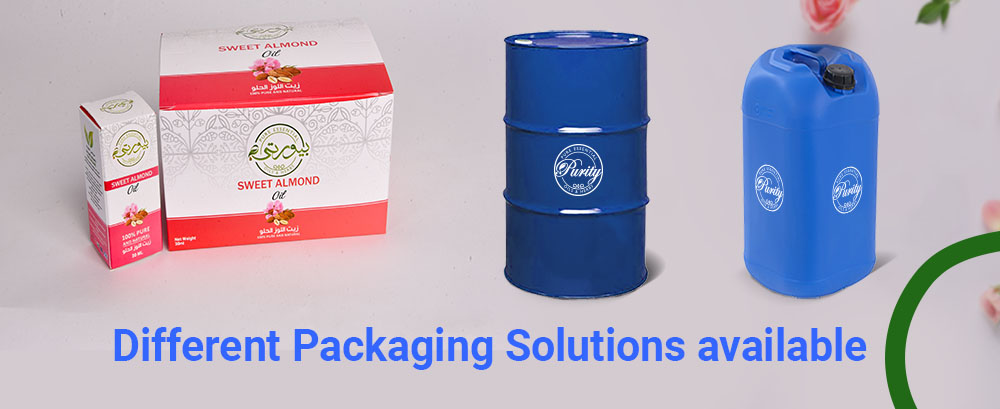Best Seller Items
-
Geranium Concentrate to make herbal Geranium drinking water (Geranium Infused Water Concentrate)
Geranium infused water concentrate to add few drops for drinking water to benefit from all amazing effects of Geranium useful ingredients. One bottle should be enough for one month use of one person
If you’re looking for a healthy alternative to soda or sugary drinks, This product is an excellent solution. Herbal water is a simple and refreshing that offers significant health benefits. It contains no sugar, no caffeine, and very few calories..
Login to view prices -
Fennel Seeds Foeniculum vulgare Essential Oil
Common name: Fennel
Latin name: Foeniculum vulgare Miller.
Family: Apiaceae (Umbelliferae)
Other names: Engl.: fennel, bitter fennel, common fennel, garden fennel, wild fennel. Deu.: Fenchel, Gewürzfenchel. Suom.: maustevenkoli, salaattifenkoli, saksankumina, venkoli. Sven.: fänkål, besk fänkål, bitter fänkål, kryddfänkål, tysk fänkål, vanlig fänkål. Fran.: fenouil. Bot. syn.: Anethum foeniculum L., Foeniculum capillaceum Gilib., Foeniculum dulce Mill., Foeniculum foeniculum (L.) Karst., Foeniculum officinale All., Foeniculum panmoricum DC., Foeniculum piperitum (Ucria) C. Presl., Foeniculum vulgare Gaertn., Meum foeniculum Spreng.
Login to view prices -
Neroli Citrus aurantium Flower Essential Oil
Common name: Bitter Orange
Latin name: Citrus aurantium L.
Family: Rutaceae.
Other names: Engl.: bitter orange, sour orange, bigarade, bigarade orange, Seville orange. Deu.: Bitterorange, Bittere Orange, Pomeranze. Suom.: pomeranssi, hapanappelsiini. Sven.: pomerans. Fran.: bigarade, bigardier, oranger amer. Span.: naranja agria, naranja amarga. Pharm.: aurantii amari cortex, aurantii flores , folia aurantii, fructus aurantii, oil of neroli, oil of petit-grain, oleum neroli. Bot. syn.: Citrus amara Link, Citrus aurantium L. var. amara L., Citrus bigaradia Duhamel, Citrus bigarradia Loisel., Citrus vulgaris Risso.
Login to view prices -
Jasmine Jasminum officinale Absolute Oil
Common name: Jasmine
Latin name: Jasminum officinale L.
Family: Oleaceae
Other names: Arab.: Yasmin or Ysmyn (Origin of Jasmine name); Engl.:Common White Jasmine, Poet’s Jasmine, Persian: Jessamine, Sp.: jazmin China: Yeh Hsi Ming Botan.: Jasminum grandiflorum, Jasminum officinale var. grandiflorum.
Two types of jasmine are used for the extraction of oil. Some botanists describe them as two distinct species: J. grandiflorum and J. officinale, while others consider J. grandiflorum to be a variety of officinale. The oil of the two flowers is virtually identical.
Poet’s jasmine: (White Jasmine) Jasminum officinale L.
Royal jasmine: (Catalonian and Spanish jasmine) Jasminum grandiflorum L.
Login to view prices -
German Chamomile Blue Matricaria chamomilla Essential Oil
Common name: German Chamomile
Latin name: Matricaria recutita L..
Family: Asteraceae (Compositae)
Other names: Engl.: German chamomile, scented mayweed, chamomile, false chamomile, German tea chamomile, Hungarian chamomile, sweet chamomile. Deu.: Echte Kamille, Kamille, Frauenblume, Johannisköpfchen, Mägdeblume, Ramerian. Suom.: kamomillasaunio. Sven.: kamomill, sötblomster, äkta kamomill. Fran.: camomille. Bot. syn.: Chamomilla officinalis Koch, Chamomilla recutita (L.) Rauschert, Chrysanthemum chamomilla Bernh., Matricaria chamomilla auct..
This plant was formerly classified as Matricaria chamomilla L.
Login to view prices -
Celery Seed Apium graveolens Essential Oil
Common name: Celery
Latin name: Apium graveolens L
Family: Apiaceae (Umbelliferae)
Other names: Arabic: Karfas, Karafs; Czech: Celer; German: Sellerie, Eppich; English: Celeriac; French: Céleri ; Spanish: Apio; Swedish: Selleri
Description:
Apium graveolens L, the common celery, is a hapaxanthic herb, grown as a biennial and, unde certain conditions, as an annual.
From the beet-like tap-root (the uppermost part being a shoot) with its fibrous sideroots rises an aerial stem, 2 to 3 ft. high, branched and leafy, which bears compound umbels of small white flowers. The small fruit (or seed, as it is called commercially) consists of an ovate, dark brown cremocarp.
Possessing a characteristic, agreeable odor and a warm, aromatic, somewhat pungent taste, it is employed as condiment in the flavoring of food products. The seed also serves as birds’ food. The volatile or essential oil distilled from celery seed is used extensively for flavoring purposes.
Login to view prices
-
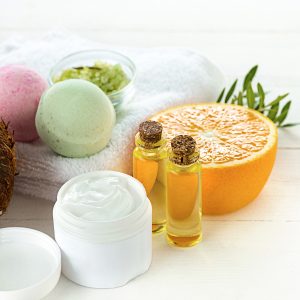
Essential Oils & Absolutes (23)
-
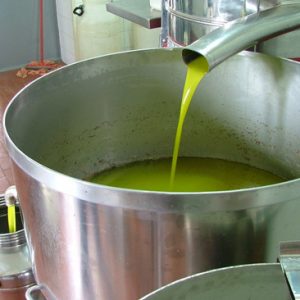
Cold Press Oils (13)
-
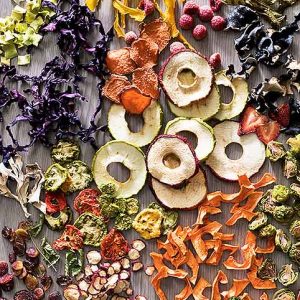
Dried Fruits & Vegetables (16)
-

Herbs & Spices (36)
-
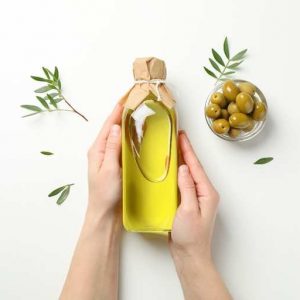
Natural Oils Consumer Package (17)
-
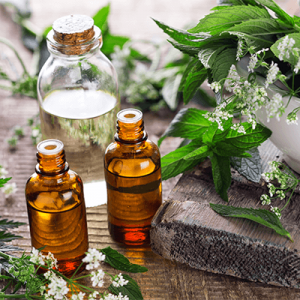
Infused Oils (18)
-
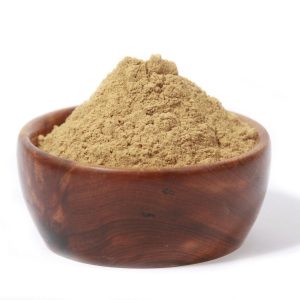
Herbal Extracts (13)
-

Herbal Water Concentrates (11)
-
Anise Pimpinella anisum Essential Oil
Common name: Anise
Latin name: Pimpinella anisum L.
Family: Apiaceae (Umbelliferae)
Other names: Engl.: anise, anise burnet saxifrage, aniseed. Deu.: Anis. Suom.: anisruoho, anis. Sven.: anis. Fran.: anis, anis vert.
It should be differentiated from the so-called star anise, Illicum verum Hooker f. (fam. Magnoliaceae). It contains oils of similar chemical composition and, therefore similar odor flavor, and utilization. It is a small evergreen tree or bush, native to China.
Anise oil is sometimes adulterated with star anise oil, fennel oil, or synthetic anethole.
Anise-hyssop (Agastache foeniculum formerly Agastache anethiodora), is a perennial plant of the Lamiaceae family, native to the United States, which has a characteristic anise scent and flavor. Common names for this plant include Korean mint or anise mint.
Login to view prices -
Anise Pimpinella anisum Seeds in Bulk packaging Shipped in 20″ FCL Container
Common name: Anise
Latin name: Pimpinella anisum L.
Family: Apiaceae (Umbelliferae)
Other names: Engl.: anise, anise burnet saxifrage, aniseed. Deu.: Anis. Suom.: anisruoho, anis. Sven.: anis. Fran.: anis, anis vert.
It should be differentiated from the so-called star anise, Illicum verum Hooker f. (fam. Magnoliaceae). It contains oils of similar chemical composition and, therefore similar odor flavor, and utilization. It is a small evergreen tree or bush, native to China.
Anise-hyssop (Agastache foeniculum formerly Agastache anethiodora), is a perennial plant of the Lamiaceae family, native to the United States, which has a characteristic anise scent and flavor. Common names for this plant include Korean mint or anise mint.
Login to view pricesAnise Pimpinella anisum Seeds in Bulk packaging Shipped in 20″ FCL Container
Login to view prices Read more -
Apple Cider Vinegar
Apple cider vinegar is a popular home remedy. People have used it for centuries in cooking and medicine. Many people claim it can relieve a wide range of health complaints, Apple cider vinegar has various healthful properties, including antimicrobial and antioxidant effects. What’s more, evidence suggests it may offer health benefits, such as aiding weight loss, reducing cholesterol, lowering blood sugar levels, and improving the symptoms of diabetes.
The best way to incorporate apple cider vinegar into your diet is to use it in cooking. It’s a simple addition to foods like salad dressings and homemade mayonnaise. Some people also like to dilute it in water and drink it as a beverage. Common dosages range from 1–2 teaspoons (5–10 mL) to 1–2 tablespoon (15–30 mL) per day mixed in a large glass of water.
Login to view prices -
Apricot Kernel Oil Organic & Conventional Consumer Packs
Almond oil is full of vitamin E, and it’s a great source of magnesium, phosphorus, and copper. The antioxidant-rich oil is known for its free radical fighting abilities. It’s also anti-inflammatory and boosts immunity. Containing omega-3 fatty acids, almond oil might help you maintain healthy cholesterol levels and improve your memory. It may help lower your risk for diseases like cancer and heart disease.
Login to view prices -
Argan Oil Argania spinosa Organic
What is Argan oil?
Argan oil is made from the kernels that grow on the argan trees native to Morocco. It’s most frequently sold as pure oil, which can be directly applied topically (directly to the skin) or ingested in order to provide several health benefits. It comes in supplement capsule form to be taken by mouth. It’s also commonly mixed into a number of cosmetic products like shampoos, soaps, and conditioners.
Argan oil has traditionally been used both topically and orally to improve the health of skin, hair, and nails. It contains a number of different beneficial properties and vitamins that form a powerful combination to boost skin health.
Argan oil has been a culinary staple in Morocco for centuries — not only because of its subtle, nutty flavor but also its wide array of potential health benefits. This naturally occurring plant oil is derived from the kernels of the fruit of the argan tree.
Although native to Morocco, argan oil is now used across the globe for a variety of culinary, cosmetic and medicinal applications.Why our Argan Oil is Super Quality?
- We select the kernels very carefully and do all tests required to guarantee the best quality oil
- We produce the oil with Cold press method which keeps all active ingredients safe without any damage
- We stock the production in very good conditions away from air and light that keep the oil safe and not affected
- We have all quality certificates like ISO, GMP, ORGANIC CERES, KOSHER, HALAL,…etc..
Login to view prices -
Argan Oil Organic & Conventional Consumer Pack
Argan oil is made from the kernels that grow on the argan trees native to Morocco. It’s most frequently sold as pure oil, which can be directly applied topically (directly to the skin) or ingested in order to provide several health benefits. It comes in supplement capsule form to be taken by mouth. It’s also commonly mixed into a number of cosmetic products like shampoos, soaps, and conditioners.
Argan oil has traditionally been used both topically and orally to improve the health of skin, hair, and nails. It contains a number of different beneficial properties and vitamins that form a powerful combination to boost skin health.
Argan oil has been a culinary staple in Morocco for centuries — not only because of its subtle, nutty flavor but also its wide array of potential health benefits. This naturally occurring plant oil is derived from the kernels of the fruit of the argan tree.
Although native to Morocco, argan oil is now used across the globe for a variety of culinary, cosmetic and medicinal applications.Login to view prices -
Basil Concentrate to make herbal Basil drinking water (Basil Infused Water Concentrate)
Basil infused water concentrate to add few drops for drinking water to benefit from all amazing effects of basil useful ingredients. One bottle should be enough for one month use of one person
If you’re looking for a healthy alternative to soda or sugary drinks, This product is an excellent solution. Herbal water is a simple and refreshing that offers significant health benefits. It contains no sugar, no caffeine, and very few calories..
Login to view prices -
Basil Ocimum basilicum Dried Leaves in bulk packaging shipped in 20″ FCL container
Common names: basil, French basil, or sweet basil (English); basilic (French); basilikum, basilienkraut (German); tulsi (Indian); basilico (Italian); albahaca (Spanish); Raihan (Arabic).
Latin name: Ocimum basilicum L
Family: Lamiaceae (Labiatae)
Basil is cultivated commercially for its green, aromatic leaves, which are used fresh or dried as a flavoring or spice. The essential oil and oleoresin are extracted from the leaves and flowering tops via steam distillation and used in place of the dried leaves for flavoring purposes.
The common sweet basil (Ocimum basilicum), with its several types and varieties, is an annual aromatic plant, widely grown because of its pleasant spicy odor and taste. There are large and dwarf types with green, purple, or variegated leaves, some of which are ornamental. Both the leaves and the essential oils distilled from the flowering plants are used as flavoring agents.
Login to view prices -
Basil Ocimum basilicum Essential Oil (Linalol & Methyl Chavicol types)
The world market for basil oil is dominated by two main types, the European and Egyptian basil oils.
- The European sweet basil, cultivated and distilled in Europe, the Mediterranean region, and the United States is considered to be of the highest quality, producing the finest odor. Characteristically, the essential oil from this basil contains high concentrations of linalool and methylchavicol (estragole), at a ratio of 2 or 3:1. Other constituents found in low concentrations include: 1,8-cineole, eugenol, alpha-terpeniol, beta-caryophyllene, geraniol, sabinene, alpha-phellandrene, gamma-terpinene, thujone, myrcene, limonene, ocimene, and para-cymene.
- The Egyptian basil oil is very similar to the European but with a higher concentration and ratio of methylchavicol relative to linalool.
Login to view pricesBasil Ocimum basilicum Essential Oil (Linalol & Methyl Chavicol types)
Login to view prices Read more -
Black Seed Nigella Sativa Oil Organic & Conventional
What is black seed oil?
Nigella sativa is a small flowering shrub with purple or white-tinged flowers that grows in Eastern Europe, the Middle East, and western Asia. While it may look unsuspecting, the shrub produces fruits that have tiny black seeds. These black seeds have been used in remedies for thousands of years.
Archaeologists even found black seeds in King Tut’s tomb, emphasizing their importance in history for healing and protection.
Why our Black Seed Oil is Super Quality?
- We select the seeds very carefully and do all tests required to guarantee the best quality oil
- We produce Black seed oil with Cold press method which keeps all active ingredients safe without any damage
- We stock the production in very good conditions away from air and light that keep the oil safe and not affected
- We have all quality certificates like ISO, GMP, ORGANIC CERES, KOSHER, HALAL,…etc..
Login to view prices -
Calendula Marigold Infused Oil (Natural Calendula flowers infused in Carrier Oil)
Calendula infused Oil, consists of a carrier oil that has been permeated (“infused”) with Calendula flowers. The benefit to using an infused oil as opposed to a plain carrier oil is that the infused oil will contain the properties of both the carrier oil and calendula flowers and is suitable for direct use for consumer
Login to view prices -
Calendula officinalis Marigold Flowers in Carton Shipped in 20″ FCL Container
Bright yellow and orange flowers, historically used for medicinal and culinary purposes, come from easy calendula care when growing this simple flower. Commonly called the pot marigold (Calendula officinalis) . Petals are used in cooking, and were used as yellow coloring in cheeses and butters in centuries past. When used in stews, broths and salads, these petals add a spicy taste similar to saffron to many dishes. All parts of calendula plants are useful in many ways. The plant is said to stimulate the immune system and is currently used as an ingredient in many cosmetics. Flowers and leaves of the calendula may be dried and stored for later use. In the vegetable garden, calendula draws aphids away from valuable plants. While uses of calendula plants are diverse, growing calendula in the flower or herb garden is an optimum use of this attractive plant. aa
Login to view pricesCalendula officinalis Marigold Flowers in Carton Shipped in 20″ FCL Container
Login to view prices Read more


